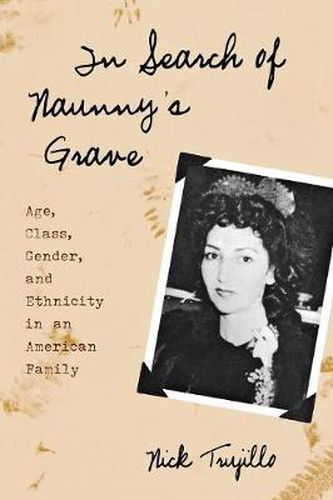Readings Newsletter
Become a Readings Member to make your shopping experience even easier.
Sign in or sign up for free!
You’re not far away from qualifying for FREE standard shipping within Australia
You’ve qualified for FREE standard shipping within Australia
The cart is loading…






Elsie Martinez Trujillo Alcaraz, ‘Naunny’ to her grandson and communication scholar Nick Trujillo, was a working class woman, daughter of New Mexico Hispanos, and eventually the resident of a Los Angeles nursing home. She becomes the focal point for Trujillo’s experimental ethnography of family relations, aging, and ethnic identity throughout the twentieth century. Collecting narratives of his grandmother’s life, Trujillo learns how family members use stories to define the family’s sense of itself and create collective views on intergenerational relations, social history, gender, class, and ethnicity. Through these stories, family photos, and his own recollections, supplemented with Elsie’s letters and journal entries, the author is able to explore topics often ignored in life histories of the elderly-sexuality, body image, eating disorders, marital discord, mobility patterns, racial prejudice, and interactions with the health care system. Trujillo’s presentation brings Naunny’s humor, liveliness, and generosity alive for scholars and students alike and provides a vivid portrait of being Hispanic and female in the 20th century American west.
$9.00 standard shipping within Australia
FREE standard shipping within Australia for orders over $100.00
Express & International shipping calculated at checkout
Elsie Martinez Trujillo Alcaraz, ‘Naunny’ to her grandson and communication scholar Nick Trujillo, was a working class woman, daughter of New Mexico Hispanos, and eventually the resident of a Los Angeles nursing home. She becomes the focal point for Trujillo’s experimental ethnography of family relations, aging, and ethnic identity throughout the twentieth century. Collecting narratives of his grandmother’s life, Trujillo learns how family members use stories to define the family’s sense of itself and create collective views on intergenerational relations, social history, gender, class, and ethnicity. Through these stories, family photos, and his own recollections, supplemented with Elsie’s letters and journal entries, the author is able to explore topics often ignored in life histories of the elderly-sexuality, body image, eating disorders, marital discord, mobility patterns, racial prejudice, and interactions with the health care system. Trujillo’s presentation brings Naunny’s humor, liveliness, and generosity alive for scholars and students alike and provides a vivid portrait of being Hispanic and female in the 20th century American west.